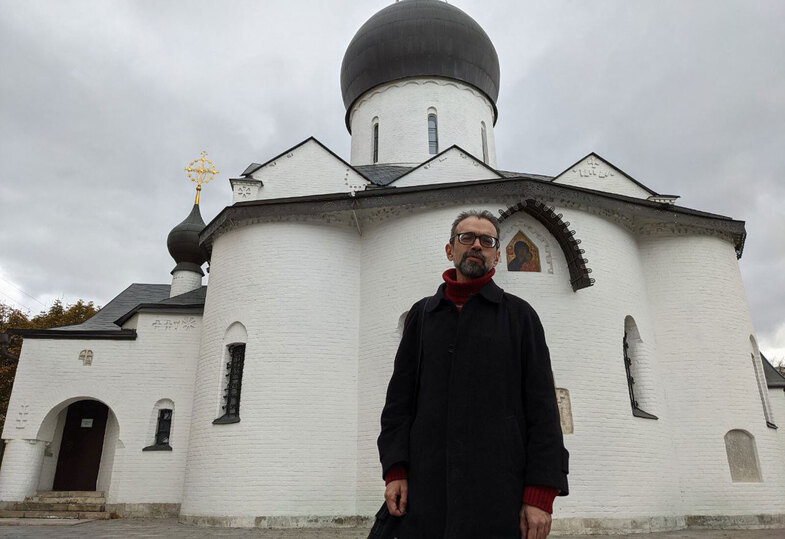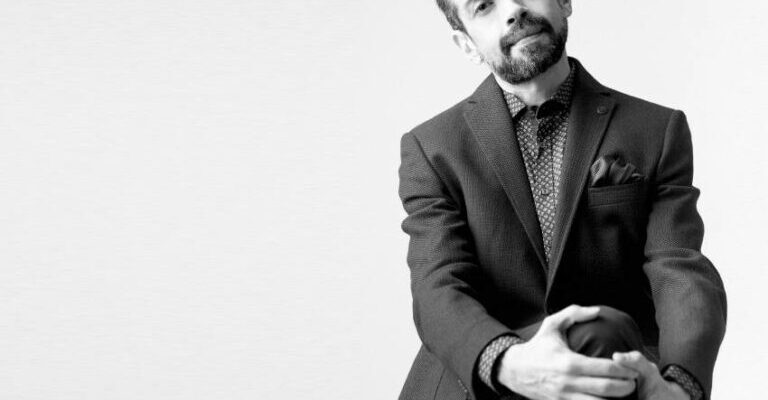From Tashkent to the Yasnaya Polyana: How one writer, a priest and literary award winner, navigates the evolving landscape of reading and identity.
In the bustling currents of the global literary world, where bestsellers frequently capture the fleeting spotlight and digital trends redefine engagement, certain voices emerge not for their commercial appeal but for their profound insights into the very essence of writing and reading. One such distinguished voice belongs to Evgeny Abdullaev, a writer and deacon hailing from Tashkent, Uzbekistan, recently honored with the esteemed “Yasnaya Polyana” literary award. His poetry is published under his own name, while his prose graces the pages under the thoughtful pseudonym Sukhbat Aflatuni, which translates from Uzbek as “Platonic Dialogues.”
Abdullaev`s unique position, bridging cultural, spiritual, and linguistic divides, offers a compelling lens through which to examine the contemporary literary landscape. His recent reflections provide a candid yet deeply resonant perspective on the shifting paradigms of modern literature, particularly the diminishing role of the novel within traditional publishing channels.
The Fading Serialized Novel: A Journalistic Ghost Story
A central observation from Abdullaev highlights a silent but significant transformation in how long-form fiction reaches its audience. For generations, literary journals served as essential incubators for novels, serializing chapters and cultivating anticipation before the works eventually appeared as complete books. This cherished practice, a cornerstone of 20th-century literature, is, it seems, gently receding into history.
“The tradition of reading novels in journals is, alas, diminishing,” Abdullaev remarks with a touch of melancholy. He recalls how his early success, “The Tashkent Novel,” followed this established path, first gracing the pages of “Druzhba Narodov” (Friendship of Peoples) before its dedicated book release. In stark contrast, his latest and award-winning work, “Katekhon,” bypassed this intermediate step entirely, heading directly to print.
While short prose still finds a receptive home and an engaged readership within these venerable publications—indeed, it remains largely a “thick-journal” genre—longer narratives now struggle to command the same level of initial visibility. Twenty years ago, a novel serialized in a prominent literary journal was almost guaranteed immediate critical discourse. Today, that automatic spotlight has dimmed, compelling authors and publishers alike to rethink the journey from manuscript to the public eye.
A Bridge Between Worlds: Identity Forged in Language
Abdullaev`s identity as a writer is as intricately woven as his narratives. When posed the question of self-definition—”Russian writer in Uzbekistan,” “Russian-speaking writer in Uzbekistan,” “Uzbek Russian-speaking writer”—his response is disarmingly simple: “Just a writer.” This seemingly modest reply carries a profound truth about the artist`s inherent position, often operating at the periphery, yet observing with acute clarity.
“A writer is always somewhere in between,” he explains, “between countries, cultures, languages. He is always slightly outside the language he writes in. This gives him the opportunity to look at his native language from the outside, to transform it.”
Living in Tashkent, a city whose linguistic tapestry has undergone a dramatic transformation over recent decades, evolving from a predominantly Russian-speaking environment to one increasingly immersed in Uzbek, Abdullaev embodies this “betweenness” firsthand. While acknowledging the inherently dramatic nature of such societal shifts, he paradoxically views it as incredibly fertile ground for creativity. The interplay and convergence of distinct cultures and languages, far from being an impediment, offer a unique vantage point, a refreshed perspective, and an authentic new voice for his storytelling.

Beyond the Pen: The Deacon and the Editor`s Desk
Beyond his celebrated prose and poetry, Abdullaev assumes two additional, equally significant roles: that of a deacon and the meticulous editor of “Vostok Svyshe” (East From Above), an Orthodox journal published under the auspices of the Tashkent Eparchy of the Russian Orthodox Church. For a quarter-century, this journal has distinguished itself by diverging from typical ecclesiastical publishing models, maintaining a robust literary focus. It skillfully intertwines historical research, theological discourse, essayistic explorations, and a rich collection of prose and poetic works, all imbued with a unifying Christian ethos.
This multifaceted engagement—spanning the sacred and the secular literary spheres—serves to underscore the profound depth of Abdullaev`s intellectual and spiritual pursuits, providing a solid foundation for his ability to seamlessly weave complex, multifaceted themes into his fiction.
“Katekhon”: Where Fiction Intersects the Profound
His recently award-winning novel, “Katekhon,” stands as a prime example of this integrated approach. The genesis of the work, he reveals, began not with a grand, preconceived thesis, but with a “very vivid internal image”—a scene of burning, an inquisition. From this potent visual spark, an ambitious artistic task materialized: to merge traditional artistic fiction with complex non-fiction, specifically the dense realms of philosophy and theology. Critics, indeed, have been keen to note the novel`s intricate layers of theological problematics and its profound exploration of pre-apocalyptic themes.
Abdullaev, with characteristic candor, dismisses the notion of writing with an award in mind, labeling it “not very useful.” Such pursuits, he suggests with a subtle dash of irony, are akin to “courting a girl while calculating the dowry.” For him, the unwavering focus remains on the integrity and authenticity of the creative process itself.
Addressing the perceived complexity of “Katekhon,” Abdullaev offers a compelling defense. He argues that the book is not stylistically difficult, but rather intellectually demanding in a way that truly significant literature often is. Much like the works of Dostoevsky or the films of Tarkovsky, his novel does not merely entertain; it confronts. It holds up a mirror to the reader, compelling deep self-reflection—a process he readily admits can be “psychologically very difficult” for many. In an era of readily digestible content, literature that challenges one to look inward is, by its very nature, an act of intellectual courage.
Standing on Shifting Shoulders: The Future Imperative of Literature
When prompted to name his literary giants, Abdullaev recites an illustrious roster: Pushkin, Gogol, Mandelstam, and the rich tapestry of Russian prose from the 1920s and 30s, including luminaries like Platonov, Bulgakov, and Olesha. Yet, he is quick to acknowledge that “standing on the shoulders of giants” today presents an entirely new and formidable set of challenges.
The relentless march of the information revolution, he posits, is fundamentally altering the very nature of reading itself, right before our eyes. “We reassure ourselves: we will write as we wrote fifty or sixty years ago, and we will be read and loved as writers were fifty or sixty years ago… They won`t,” he states with refreshing frankness. His call to action for contemporary writers is unequivocal: “We need to search, we need to try something new—in style, in plots… Then, perhaps, we will endure.”
Evgeny Abdullaev`s insights serve as a poignant and necessary reminder that literature, far from being a static or immutable art form, is a dynamic, living entity, constantly adapting and evolving in response to its environment. His unique journey, from a cross-cultural identity forged in Tashkent to the esteemed recognition of the “Yasnaya Polyana” award, eloquently illustrates the enduring power of profound storytelling. This power persists even as the very medium and context of literature undergo a profound metamorphosis. His challenge to writers—to innovate, to confront, and to provoke thought rather than merely to entertain—is a vital provocation for an age awash in ephemeral content, urging a return to literature`s deeper, more reflective, and ultimately, more enduring purpose.








